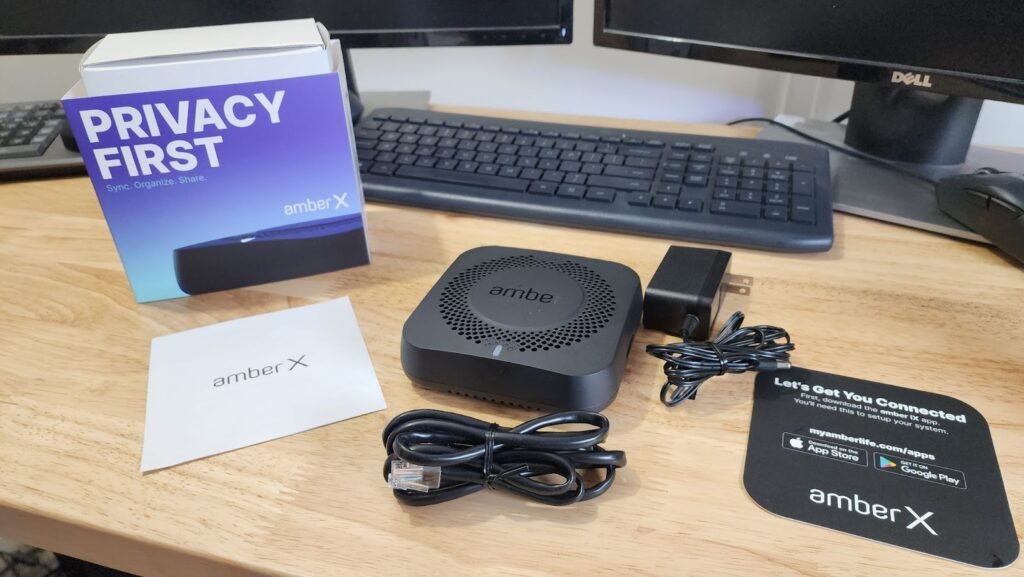When it comes to storing your family’s photos, videos, and just about any digital media, you’re probably wondering which is the best option. NAS or cloud storage? Both have their pros and cons, but which one is right for you? Both cloud storage and network-attached storage are increasingly growing in popularity. And both of them are great for storing digital media and a lot more. We take a deeper dive at the basics of both options and help you decide which is best for you.
NAS vs. Cloud Storage: An Overview
I could write a novel on both these kinds of storage technologies. First off, I think both are great. I’ve talked about cloud storage devices I love, and I’ve reviewed my favorite NAS device and when comparing them it can be difficult. We all have different uses and reasons for using storage technology. For example, when it comes to cloud storage I love that you can store your data in the cloud without any technical knowledge, unlike NAS drives. It’s so EASY! The NAS drive user must manually set up and secure the drive. And you might be thinking ‘That sounds like a lot of work and technically I’m not up to that.’ BUT…it really isn’t that bad AND the NAS I love to use (Synology’s Diskstation comes with great how-to videos). I get it, users may not find this suitable, and having to do these extra steps might scare them away. But in some regards, this small nuance doesn’t create that much disparity between which storage technology is better.
Despite their differences, most users rated both NAS and cloud storage as excellent. Let’s get into this storage technology comparison a little more…
Network-Attached Storage (NAS)
Network-attached storage (NAS) is an internet-connected data storage device. The hard drives in the device are usually removable or replaceable. A NAS is a great way to store a family’s (or a small company’s for that matter) videos, pictures, games, programs, and even legal documents. In a way, NAS is kinda like the digital version of the security box you have in your closet where you store all your important documents.
Due to the native software of most network-attached storage devices, you are primarily allowed to access and share your files using any web browser or app.
LEARN MORE: What Is NAS?
Cloud Storage
On the other hand with cloud storage, you access your data through the Internet. The application only requires a PC, laptop, or mobile device. Storage of data anywhere, anytime, is the main value proposition of cloud storage. Users can quickly increase storage capacity by paying service providers a little more on their monthly plan. Business enterprises can use them to store documents, images, and videos. They are also ideal for bringing music anywhere.
DISCOVER: Is This The Best Smart Photo Manager
NAS vs. Cloud Storage: Features
Many consumers consider Network Attached Storage a similar solution to cloud services and to be fair…those comparisons are valid. In addition to offering file and image editing features, cloud services are expanding beyond storage. Likewise, NAS is increasing its capabilities as well. Consider these key points before choosing.
Ease of Use
While NAS devices are becoming more user-friendly, consumer-oriented products still can’t compete with cloud services in terms of ease of use. As a media server, NAS is essential for streaming and accessing your videos, songs, and images. You can use most cloud services with desktop apps like any other folder. Even though setting up your NAS device takes a few extra steps and a little technical know-how, cloud storage gets the nod for ease of use. However, for those that would consider themselves novice technology users, ease of use would be a toss-up.
Data Sharing
Compared to cloud storage, NAS offers a greater degree of sharing accessibility. In my opinion, I think sharing via NAS is more secure as well. Connecting a NAS device to a TV, laptop, smartphone, or customized app is possible. You can access all the stored data by simply plugging it in. A NAS server is perfect for business teams working daily with large files and as mentioned…more secure.
On the flip side, many companies use cloud storage. And they can also access data with a few clicks using a laptop or smartphone. Using cloud storage, businesses can make the data-sharing experience seamless; all you need is a fast internet connection. With data sharing, it’s a slight edge over NAS primarily because it is more secure when it comes to data sharing.
Performance
Network speed and data usage directly affect performance or speed. The transfer speed of your files to a cloud server depends on your Internet connection’s upload speed. It may still be slower since most cloud service apps don’t use the maximum bandwidth. Large files might require syncing or uploading which can slow down performance.
TRENDING: The My Cloud Home Duo Review
Some NAS devices can be attached to your computer directly over Wi-Fi or Ethernet via a wired connection. It is a faster way to upload than through the Internet. NAS, however, may have slower read speeds than cloud services. Your Internet connection speed will restrict your ability to read files remotely from your NAS over the Internet. Again…when it comes to performance, I’d give a slight edge to NAS over cloud storage.
Storage Limitation
NAS devices can store a lot of data depending on how many drives they have. NAS storage increases as you add more drives. That’s one of the beauties of network-attached storage. Most network-attached storage devices provide storage in the 500GB to 4TB storage range at a fixed price. You can also request more storage if you need it. Additional hard drives can increase storage capacity up to 10TB. You can increase storage, but you most likely will need more hardware.
RELATED: Our Synology DiskStation NAS Review
NAS storage has a higher storage capacity, but cloud storage has other benefits that exceed it. Streamlined maintenance is the main advantage of cloud storage. Cloud storage is usually free upfront, ranging from 5GB to 15GB. I’m sure you all use Google Drive. The service provider can easily upgrade your storage once you run out. You do not need any additional devices. A point-and-click upgrade is all it takes. But in today’s digital ecosystems, 15GB isn’t that much. So the whole “free storage” schtick is running its course. In fact, I wouldn’t be surprised if in the near future 50GB is the new “free” standard. Hard to give the nod to one or the other when it comes to storage limitations. If you’re okay with being strapped to monthly fees for increased storage (and tied to the cloud storage if they raise prices in the future ~ which is inevitable), then cloud storage gets the nod. On the other hand, NAS storage devices are relatively cheap and it’s a one-time fee (the price of the product); for this reason, I personally would give NAS the edge in storage limitations.
Data Privacy Issues
Data privacy is a hot topic these days. We’ve covered it quite a bit on the site. With all the news about data breaches, it’s no wonder that people are concerned about where and how their data is stored. Which one of the data storage options is better for data privacy? Both NAS and cloud storage have their advantages, but NAS is generally better for data privacy.
With NAS, your data is stored locally, on a physical device that you own. This means that you have complete control over who has access to your data. With cloud storage, on the other hand, your data is stored on a server owned by a third party. This means that the company that owns the server can access your data and may also be required to hand over your data to government agencies if requested. And you also have the possibility of employees having access to that data as well. With NAS, you can encrypt your data so that it can only be accessed by authorized users. Cloud storage providers generally do not offer this level of security, but some do.
If data privacy is a concern for you, NAS is the better option. You’ll have more control over who has access to your data and more control to keep it safe from prying eyes.
NAS vs. Cloud Storage: The Verdict
So, which is the better option? It really depends on your needs and preferences. Both methods are effective, and many people choose to use both.
Whatever you choose, make sure you are aware of the features of the specific device or service you use. Data security and privacy are paramount when it comes to backups and sharing. Network-attached storage (NAS) allows multiple users to easily and securely access data stored on the NAS. One advantage of NAS is that it can be used without an internet connection. However, NAS can be a little more expensive upfront than other storage options and it requires some technical knowledge to set up and maintain. If you are leaning towards a network-attached storage device, I highly recommend Synology’s DiskStation.
One advantage of cloud storage is that it offers unlimited scalability (limited to what your service provides and you will pay for it as well), so you can easily increase your storage capacity as needed. Cloud storage can also be less expensive than other options and it doesn’t require any special technical knowledge to set up or use. However, cloud storage does require an internet connection to access your data and NAS is more secure when it comes to storing and sharing data. What do I recommend for cloud storage? I love Google Drive and Dropbox for cloud storage, but I love Western Digital’s My Cloud Home personal cloud storage. Yes, it comes with a device and you can get up to 20TBs of storage, but it operates more like your typical cloud storage vs a standard NAS device.








